 W
WFrederick Charles Belson was an English international rugby union forward who played club rugby for Clifton and Bath, and county rugby for Somerset. Belson played international rugby for the British Isles on their 1899 tour of Australia.
 W
WNorman Witchell Biggs was a Welsh international rugby union wing who played club rugby for Cardiff and county rugby for Glamorgan. Both Biggs and his brother Selwyn played international rugby for Wales, though they never played together in the same match for Wales. Biggs also played cricket for Glamorgan and in 1893 was part of a team that took on Cardiff in a two-day match; he faced his brother Selwyn, who was a member of the Cardiff team.
 W
WGeneral Sir James Frederick Noel Birch was a British Royal Artillery officer during the Second Boer War and World War I and subsequently Master-General of the Ordnance. The Birch gun was named after him.
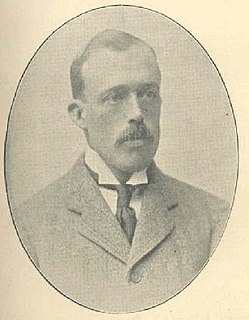 W
WThomas Allnutt Brassey, 2nd Earl Brassey TD, DL, JP, MInstNA, AMICE, styled Viscount Hythe between 1911 and 1918, was a British peer, who was for many years editor or joint editor of Brassey's Naval Annual.
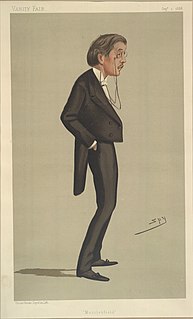 W
WBrigadier-General Sir William Bromley-Davenport, was a British soldier, footballer and Conservative politician. He fought with distinction in both the Second Boer War and the First World War. An MP from 1886 to 1906, he held political office under Arthur Balfour as Financial Secretary to the War Office from 1903 to 1905.
 W
WJohn Weston Brooke FRGS was a British military officer and explorer.
 W
WSir George Bullough, 1st Baronet was a late Victorian playboy and was an owner and breeder of thoroughbred racehorses.
 W
WAir Chief Marshal Sir Charles Stuart Burnett, was a senior commander in the Royal Air Force during the first half of the 20th century. He was Air Officer Commanding Iraq Command during the early 1930s. During the Second World War, he served as Chief of the Air Staff of the Royal Australian Air Force.
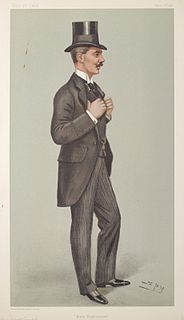 W
WLord Alwyne Frederick Compton, DSO, DL was a British Army officer who became a Liberal Unionist and then Unionist politician.
 W
WCharles Spencer Canning Boyle, 10th Earl of Cork and Orrery, styled Viscount Dungarvan until 1904, was an Irish soldier and peer.
 W
WMajor Alexis Charles Doxat, was an English recipient of the Victoria Cross, the highest and most prestigious award for gallantry in the face of the enemy that can be awarded to British and Commonwealth forces.
 W
WAlexander Edward Murray, 8th Earl of Dunmore, known by the courtesy title Viscount Fincastle until 1907, was a British soldier and politician.
 W
WSir Eustace Edward Twisleton-Wykeham-Fiennes, 1st Baronet, known as Sir Eustace Fiennes, was a British soldier, Liberal politician and colonial administrator.
 W
WLieutenant-Colonel Sir John Gilmour, 2nd Baronet was a Scottish Unionist politician. He notably served as Home Secretary from 1932 to 1935.
 W
WSir Walter Raymond Greene, 2nd Baronet, DSO was a British Conservative politician.
 W
WWilliam Frederick Danvers Smith, 2nd Viscount Hambleden DL, known as Frederick Smith, was an English hereditary peer, businessman and politician.
 W
WAustin Hopkinson JP was a British industrialist and Member of Parliament (MP) for constituencies in present-day Greater Manchester who was notable for rejecting membership of political parties and sitting as an Independent member. He represented Mossley from 1918 to 1929 and 1931 to 1945. He was also a noted benefactor to local causes, and a strong believer in noblesse oblige.
 W
WThomas Evelyn Scott-Ellis, 8th Baron Howard de Walden, 4th Baron Seaford was an English peer, landowner, writer and patron of the arts.
 W
WEsmé William Howard, 1st Baron Howard of Penrith, was a British diplomat. He served as British Ambassador to the United States between 1924 and 1930. He was one of Britain's most influential diplomats of the early part of the twentieth century. With a gift for languages and a skilled diplomat, Howard is described in his biography as an integral member of the small group of men who made and implemented British foreign policy between 1900 and 1930, a critical transitional period in Britain's history as a world power.
 W
WSir Edward Henry Hulse, 6th Baronet was a British Conservative Party politician.
 W
WMajor Alexander Malins Lafone, VC was an English British Army officer and a recipient of the Victoria Cross, the highest and most prestigious award for gallantry in the face of the enemy that can be awarded to British and Commonwealth forces.
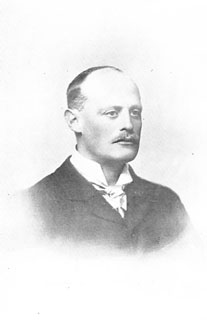 W
WThomas Pakenham, 5th Earl of Longford, KP, MVO, known as Lord Silchester until 1887, was an Irish peer and soldier.
 W
WSir Percy Lyham Loraine, 12th Baronet, was a British diplomat. He was British High Commissioner to Egypt from 1929 to 1933, British Ambassador to Turkey from 1933 to 1939 and British Ambassador to Italy from 1939 to 1940. In later life he was involved in breeding thoroughbreds for horse racing and won the 2000 Guineas Stakes in 1954 with Darius. He was the last of the Loraine baronets, having no sons to succeed him.
 W
WCharles Richard John Spencer-Churchill, 9th Duke of Marlborough,, styled Earl of Sunderland until 1883 and Marquess of Blandford between 1883 and 1892, was a British soldier and Conservative politician, and a close friend of his first cousin Winston Churchill. He was often known as "Sunny" Marlborough after his courtesy title of Earl of Sunderland.
 W
WDouglas Hamilton McLean was an Australian-born rower who rowed in the Boat Race five times and won Silver Goblets at Henley Royal Regatta. He was also a cricketer who played one match for Somerset in 1896. McLean was born in Sydney, the son of John Donald McLean, colonial treasurer of Queensland, Australia. He went to England where was educated at Eton College and made his first appearance at Henley in the Eton eight winning the Ladies' Challenge Plate in 1882. He went on to New College, Oxford where he rowed in the Oxford crew in the Boat Race five times between 1883 and 1887, winning the 1883 and 1885 races. He won the University Pairs for New College in 1885 and also Silver Goblets at Henley with his brother, Hector McLean. In 1886 the McLean brothers were beaten in the final of the Silver Goblets by Stanley Muttlebury and Fraser Churchill. McLean was Australia in December 1886 when he played a match for Geelong Cricket Club and then in India at the start of 1887, but returned in time to take part in his fifth boat race. During the race McLean's oar broke. Oxford were behind at Barnes Railway Bridge, but Cambridge moved into rougher water too far over to the Surrey bank and Oxford were expecting to push through when the disaster struck. Guy Nickalls, then in his first Boat Race, recorded "Then, 'Ducker' McLean broke his oar off short at the button. With the station in our favour and him out of the boat we could have won even then, but 'Ducker' funked the oncoming penny steamers and, instead of jumping overboard as he should have done, we had to lug his now useless body along, to lose the finish." At Henley the McLeans were again runners up in Silver Goblets to Muttlebury and Charles Theodore Barclay.
 W
WSir James Percy Miller, 2nd Baronet, was a British soldier, known as a racehorse owner. Over the 17 years when he had horses in training, Miller won 161 races, worth £114,005.
 W
WJohn Edward Bernard Seely, 1st Baron Mottistone, was a British Army general and politician. He was a Conservative Member of Parliament (MP) from 1900 to 1904 and a Liberal MP from 1904 to 1922 and from 1923 to 1924. He was Secretary of State for War for the two years prior to the First World War, before being forced to resign as a result of the Curragh Incident. As General Jack Seely, he led one of the last great cavalry charges in history at the Battle of Moreuil Wood on his war horse Warrior in March 1918. Seely was a great friend of Winston Churchill and the only former cabinet minister to go to the front in 1914 and still be there four years later.
 W
WWalter Edward Guinness, 1st Baron Moyne, DSO & Bar, PC, was an Anglo-Irish politician and businessman. He served as the British minister of state in the Middle East until November 1944, when he was assassinated by the Jewish terrorist group Lehi. The assassination of Lord Moyne sent shock waves through Palestine and the rest of the world.
 W
WGeorge Kemp, 1st Baron Rochdale, was a British politician, soldier, businessman and cricketer.
 W
WSir Humphry Davy Rolleston, 1st Baronet, was a prominent English physician.
 W
WMajor General Aldred Frederick George Beresford Lumley, 10th Earl of Scarbrough, styled Viscount Lumley from 1868 to 1884, was an Anglo-Irish peer, soldier and landowner. He was noted for his long service in both the Territorial Army and politics, which included 60 years in the House of Lords, and for his contributions to the growth of the seaside resort of Skegness, Lincolnshire.
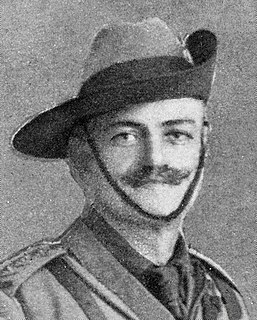 W
WBlair Inskip Swannell was an English-born international rugby union forward who played club rugby for Northampton, and internationally for the British Isles and later Australia. He was invited to tour with the British Isles on their 1899 tour of Australia and then their 1904 tour of Australia and New Zealand. He played a total of seven Test matches on these tours, and scored one Test try – against Australia during the 1904 tour. After settling in Australia, Swannell played a single game for his new home when they faced New Zealand. He was viewed as a violent player, and this made his unpopular with other players. Former Australian captain Herbert Moran said of him that "... his conception of rugby was one of trained violence".
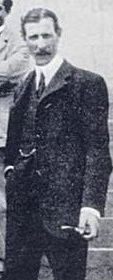 W
WThe Honourable Wilfred Gilbert Thesiger DSO was a British officer and diplomat, who was British Minister in Ethiopia from 1909 to 1919.
 W
WLieutenant-Colonel Ernest Vaux, was a business man from County Durham and a distinguished officer in the Volunteer Force and Territorial Force during the Second Boer War and World War I.
 W
WHugh Richard Arthur Grosvenor, 2nd Duke of Westminster, was a British landowner and one of the wealthiest men in the world.
 W
WIvor Churchill Guest, 1st Viscount Wimborne, KP, PC, known as Lord Ashby St Ledgers from 1910 to 1914 and as Lord Wimborne from 1914 to 1918, was a British politician and one of the last Lords Lieutenant of Ireland, serving in that position at the time of the Easter Rising.
 W
WGeorge Abraham Gibbs, 1st Baron Wraxall, was a British Conservative politician.